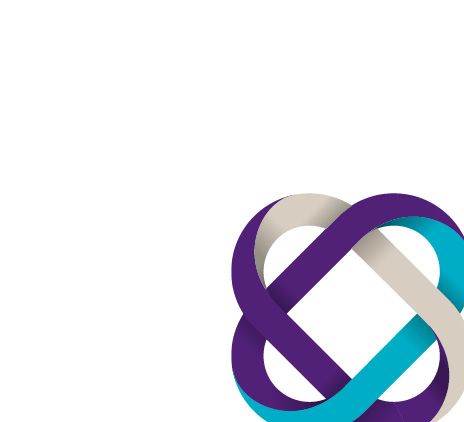-
Transactional advisory services
Find out more about the transactional advisory services of Grant Thornton Financial Advisory Services
-
Valuations
Find out more about the valuations services of Grant Thornton Financial Advisory Services
-
Mergers and acquisitions
Find out more about the merger and acquisition services of Grant Thornton Financial Advisory Services
-
Forensic and investigation services
Find out more about the forensic and investigation services of Grant Thornton Financial Advisory Services
-
Recovery & reorganisation
Find out more about the Recovery & reorganisation services of Grant Thornton Financial Advisory Services
-
Business risk services
Find out more about the business risk services of Grant Thornton Financial Advisory Services
-
Business consulting
Find out more about the business consulting services of Grant Thornton Financial Advisory Services
-
Capital market
Capital market
-
Corporate and business tax
Find out more about our corporate and business tax services.
-
Direct international tax
Find out more about our direct international tax services.
-
Global mobility services
Find out more about our global mobility services.
-
Indirect international tax
Find out more about our indirect international tax services.
-
Transfer pricing
Find out more about our transfer pricing services.
-
Litigation
Our lawyers and accountants can manage all defense measures provided not only by the Italian law, but also by EU regulations and conventions
-
Family business
Find out more about our Family business services.
-
Legal
The client can be assisted in every need and with the same care both on important operations or disputes and on simple matters

-
Back office outsourcing
Find out more about our Back office outsourcing services
-
Business process outsourcing
Find out more about our business process outsourcing services.
-
Compilation of financial statements
Find out more about our compilation of financial statements services.
-
Tax compliance
Find out more about our tax compliance services.
-
Electronic invoicing
Find out more about our electronic invoicing services
-
Electronic storage
Electronic storage is an archiving procedure that guarantees the legal validity of a digitally stored electronic document
-
Revaluation of corporate assets
Find out your civil and fiscal revaluation of tangible, intangible and financial assets
-
Human resources consulting
Find out more about our human resources consulting services.
-
Payroll
Find out more about our payroll services.
-
HR News
HR News the monthly information newsletter by Grant Thornton HR
-
Cybersecurity
GT Digital helps clients structure information security management internal functions, also through partially or totally outsourced functions
-
Agile and Programme Management
GT Digital provides support in the adoption and implementation of different portfolio management
-
Robotic Process Automation
Our “BOT Farm” can rely on digital workers able to help clients in routine activities, allowing employees to deal with more added-value activities
-
Data strategy and management
GT Digital can support clients in seizing the opportunities offered by Big Data, from the definition of strategies to the implementation of systems
-
Enterprise Resource Planning
We support clients in selecting the most appropriate ERP System according to their specific needs, helping them also understand licensing models
-
IT strategy
GT Digital supports clients in making strategic choices, identifying innovation opportunities, comparing themselves with competitors
-
IT service management
We can support with software selection and with the implementation of dedicated tools for the management of ICT processes
According to Grant Thornton, optimism declined by 10% in the first half of the year compared to the second semester of 2019, with only 23% of businesses being positive on their recovery in the next 12 months. Globally, such confidence decreased to 43% (-16%).
- Optimism of Italian businesses on market growth in the next 12 months has declined from 33% to 23%, while the global average is 43%;
- 40% of Italian businesses expect a decrease in revenues, while only 24% expect an increase (42% in H2 2019);
- The greatest impact at a global level derives from the effects of Covid-19, since more than 65% of businesses expect negative impacts on their revenues (-9.7%) in 2020 due to the pandemic;
- The global economic uncertainty remains high and two thirds of businesses mention it as a constraint to business (68% in Italy);
- Only 21% of Italian companies expects to hire in the next year due to the effects of Covid-19, in line with the European trend (20%), while the global average is 28%.
Milan, 29 July 2020 – For the first half of the year, Grant Thornton, international advisory network, suggests a sharp decline in the optimism of Italian businesses (-10%) as concerns their economic expectations for the next 12 months and only 23% of companies are optimistic about their recovery.
The Italian performance is in line with the global decreasing trend (-16%), which is the lowest level since the Eurozone crisis of 2011-2012. Optimism fell also in Europe, decreasing, in line with the general data, by 16% compared to H2 2019, with only 20% of businesses being positive.
This general uncertainty scenario, which, according to Grant Thornton, reflects a pessimism on future expectations of businesses on the key drivers of economic growth, such as turnover, return and employment, foreshadows a potentially difficult year for the business performance.
Only 24% of Italian businesses expect an increase in revenues in the next 12 months, and this is a net decline compared to 42% registered in H2 2019. On the contrary, 40% expect a decrease in revenues. With reference to the global average, only 34% expects an increase in revenues, showing a decrease by 20 percentage points compared to H2 2019.
An important percentage of businesses, equal to 65%, expect Covid-19 to have a negative impact on revenues in 2020, expected to fall by 9.7% in 2020 on a global average due to the effects of the pandemic.
Focusing on the different loss levels, the expected scenario seems not so discouraging in Italy, since only 2.7% of companies believe that the impacts of Covid will cause an economic loss higher than 50%, 11.3% believe it will cause a loss between 20 and 29%, while the greatest part of firms – 32.7% expect a slighter loss between 1 and 9%. Encouragingly, 4.7% of businesses expect an increase in revenues by 10%.
The current environment has driven a large spike in Economic Uncertainty — 66% of firms identify uncertainty as a business constraint (with nearly 1-in-3 firms identifying it as a major constraint). In Italy, this number increases to 68% (+19% compared to H2 2019), while in Europe is equal to 59% (+14%).
Among the main hindrances to growth, there is also the lack in demand, that 57% of Italian businesses identify as a constraint, slightly exceeding the global figure (55%) and also exceeding the European trend (51%). The collapse in demand, elevated levels of uncertainty, and concerns over a finance availability will all contribute to a decline in Investment intentions.
In Italy, there was a decrease (-18%) in the number of businesses that are planning to invest in the quality of their products and services and only 29% of firms expect to increase R&D expenses in the next 12 months. Negative trends were also registered in the growth of export, since the percentage of optimistic firms is more than halved, from 30% in 2019 to 16%.
Data concerning employment are also negative; in fact, the number of Italian firms expecting new hiring in the next year has decreased (from 36% to 21%), and the same decline was registered in the European Union (dal 36% al 20%). The dramatic impacts of Covid-19 pandemic on the labour market have contributed to this trend, as only 28% of companies in the world expect to hire over the next 12 months (45% in H2 2019).
Due to the consequences of the current crisis, many firms (nearly 50%) are already considering workplace safety in preparation for the recovery, a strong sentiment also in Italy (nearly 35%) and in Europe (38%). Cashflow will remain a concern for many businesses: over 40% of firms have started to plan for financial resources needed during the recovery phase (19% in Italy and 30% in Europe).
In addition to identifying a need to use more technology and digital transformation in business strategy going forward (31% in Italy, nearly 36% in Europe and approx. 46% globally), the Covid-19 crisis has highlighted a need for better organisations flexibility (recognized by 30% of Italian firms, by 40% of European firms and by 46% of global firms) and crisis management processes (approx. 25% of Italian firms, 31% of European firms and 42% of global firms).
Gabriele Labombarda, Partner & IBC Director Bernoni Grant Thornton commented: “as we can see from the IBR results, business optimism has seen a sharp decline globally, justified by the low economic performances of the last months due mainly to the impacts of Covid-19 in international markets.
In particular, the effects of the pandemic, such as the collapse in demand, elevated levels of uncertainty, and concerns over a finance availability have led firms to rethink and review their business strategies related to the coming future.
Many companies were able to exploit the forced suspension and/or reduction of their business activity due to lockdowns and took measures to deal with the difficulties caused by the pandemic, such as the rethinking and reorganization of operating processes and the restructuring of their financial position, in preparation for the recovery phase”.

